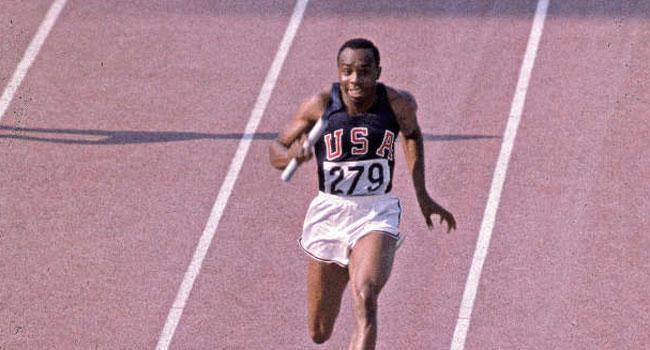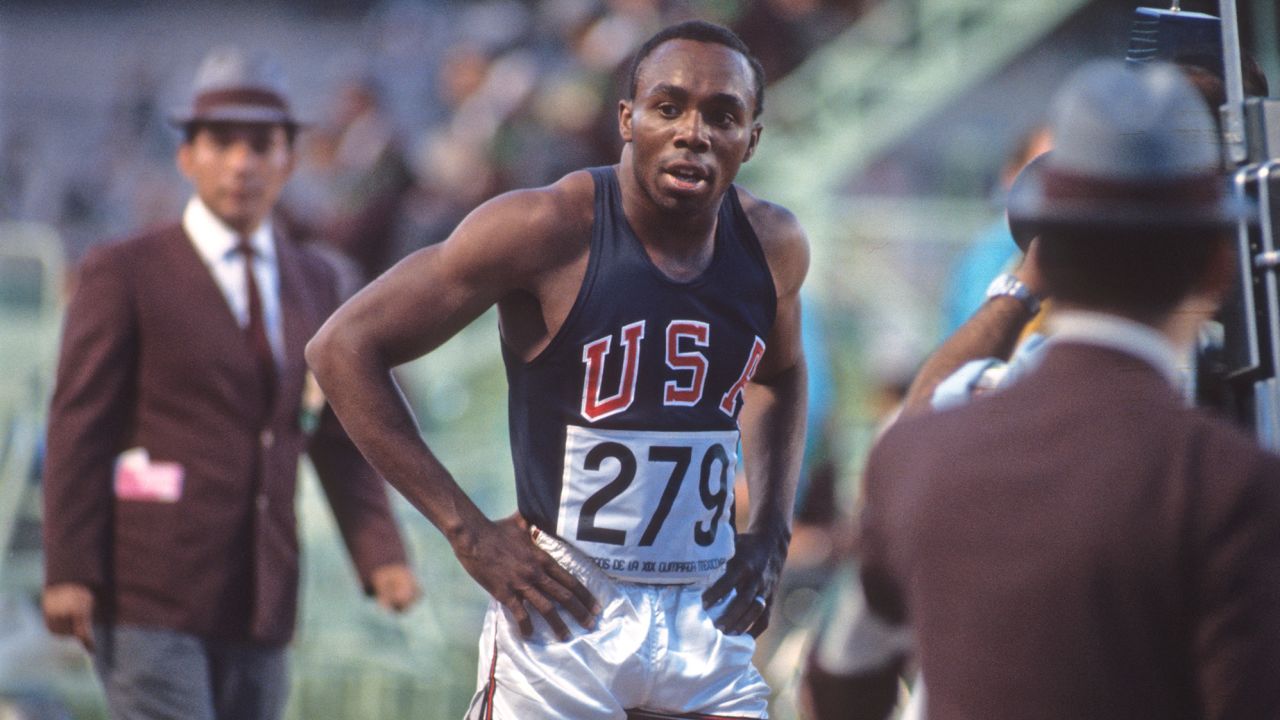Jim Hines, the renowned sprinter who etched his name in the annals of track and field history as the first man to complete the 100 meters in under 10 seconds, has passed away at the age of 76. Hines’ extraordinary speed and remarkable accomplishments on the track earned him a gold medal in the 100m event at the 1968 Olympics held in Mexico City.
Iconic Sprinter Jim Hines, Pioneering Trailblazer of Track and Field, Ascends at 76, Leaving a Resplendent and Indelible Legacy
While Hines’ groundbreaking achievement in the summer of 1968 undoubtedly deserves recognition and celebration, it often takes a backseat to the enduring memory of the tumultuous Mexico Olympics, which is primarily remembered for the powerful protests against racism staged by black US athletes.
Born in Arkansas as the ninth child among twelve siblings, Hines’ family relocated to California when he was just six years old. His exceptional speed as a center fielder on the school’s baseball team caught the attention of a track coach, leading him to join Texas Southern University on an athletics scholarship. Under the guidance of coach Bobby Joe Marrow, the 1956 Melbourne Olympics 100m and 200m champion, Hines made rapid progress in his athletic career.
From 1965 to 1968, Hines engaged in a thrilling rivalry with his friend Charlie Greene, dominating the sprint scene in the United States. In 1967, Hines ranked first in the 100 yards/100m category after equalling the world record of 9.1 seconds for the 100 yards and 10.0 seconds for the 100m.
Hines and Greene played pivotal roles in an extraordinary day of sprinting at the 1968 Amateur Athletic Union (AAU) national championships, forever known as “The Night of Speed.” Hines won the first qualifying heat with a wind-aided time of 9.8 seconds, followed by a victory in the first of two semi-finals with a time of 9.9 seconds (hand-timed). In this historic race, Hines became the first man ever to legally run the 100m in under 10 seconds. Greene matched the newly established world record in the second semi-final before both athletes clocked identical, wind-aided times of 10 seconds in the final, culminating in an extraordinary evening of sprinting, all within a span of approximately two-and-a-half hours.
“There will never be another night like it,” Hines remarked in a 2004 article on the World Athletics website, reflecting on the reunion of the protagonists of that momentous June night when three athletes broke the 10-second barrier and seven others equalled it. “That was the greatest sprinting series in the history of track & field.”
At the 1968 Mexico Olympics, Hines qualified second behind Greene for the 100m event. Amidst the backdrop of racial injustice and the powerful calls for boycott by black US athletes, as well as the iconic Black Power salute by Tommie Smith and John Carlos on the podium, Hines secured the gold medal in the 100m race, crossing the finish line in 9.9 seconds at Mexico City’s altitude. The newly installed electronic timing system recorded his time as 9.95 seconds, marking the first legal, automatically timed 100m race under 10 seconds. Despite dealing with a hamstring issue, Greene managed to claim third place.
Unforgettable Sprinter Jim Hines, Daring Powerhouse and Trailblazer of Track and Field, Soars at 76, Leaving a Glorious and Enduring Legacy
Hines’ world record stood unbroken for 15 years, making it the longest-standing men’s 100m record until Calvin Smith surpassed it in 1983 with a time of 9.93 seconds, also achieved at the altitude of Colorado Springs. The enduring quality of Hines’ record serves as a symbol of remarkable human achievement, akin to Roger Bannister’s historic sub-four-minute mile in 1959. As for the Mexico Games themselves, Bob Beamon
‘s “leap of the century” with a distance of 8.90 meters in the long jump and Dick Fosbury’s victory in the high jump using the now-iconic Fosbury Flop technique dominated the headlines.
Hines’ Olympic record remained unbroken until the 1988 Seoul Games, when Carl Lewis achieved a time of 9.92 seconds in the 100m event. Usain Bolt’s current world record of 9.58 seconds, set in 2009, has now stood for nearly 14 years.
In addition to his individual achievements, Hines played a crucial role in the US 4x100m relay team, contributing to their victory and setting a world record.
By 1976, Hines found himself sharing the 100m world record with eight other athletes. In 1977, World Athletics established a ruling that required sprint records (ranging from 100m to 400m) to be automatically timed to the hundredth of a second, making Hines the sole record holder until 1983.
Shortly after his Olympic triumph, Hines fell victim to a burglary at his Houston home, resulting in the theft of several items, including his gold medals. However, after Hines issued a public appeal through a local newspaper, the medals were miraculously returned to him in an envelope.
Given the strict amateur code governing track and field during that time, it came as no surprise that Hines opted to sign a professional football contract with the Miami Dolphins in the American Football League (now known as the NFL, or National Football League), where he served as a wide receiver. Although renowned as one of the fastest players in the league’s history, Hines’ lack of football skills earned him the unfortunate nickname “Oops.” After participating in 10 games for the Dolphins, he briefly played for the Kansas City Chiefs before concluding that chapter of his life.
Hines remained active in competitive running well into his late 30s, even competing in the professional International Track Association circuit during the early 1970s. It is also worth mentioning that he is believed to have worked on oil rigs near Houston.
In recognition of his extraordinary contributions to the sport, Hines was inducted into the USA Track and Field Hall of Fame in 1979.
Jim Hines’ untimely passing marks the end of an era for track and field, leaving behind a legacy of remarkable achievements and a blazing trail for future generations of athletes. His indomitable spirit, unmatched speed, and groundbreaking accomplishments will forever be remembered in the annals of sports history.


















































